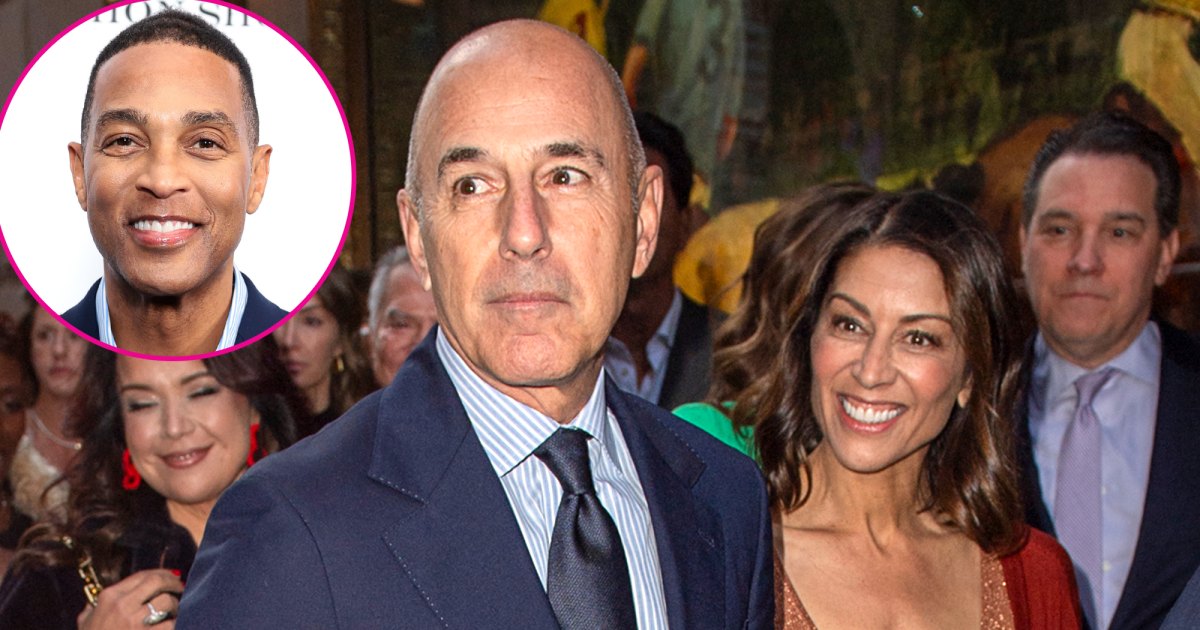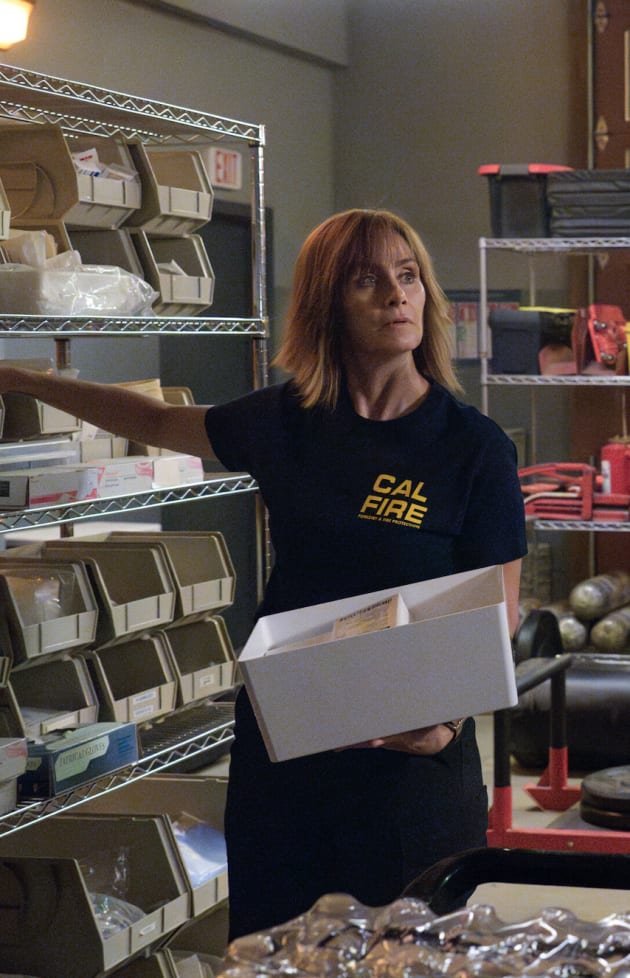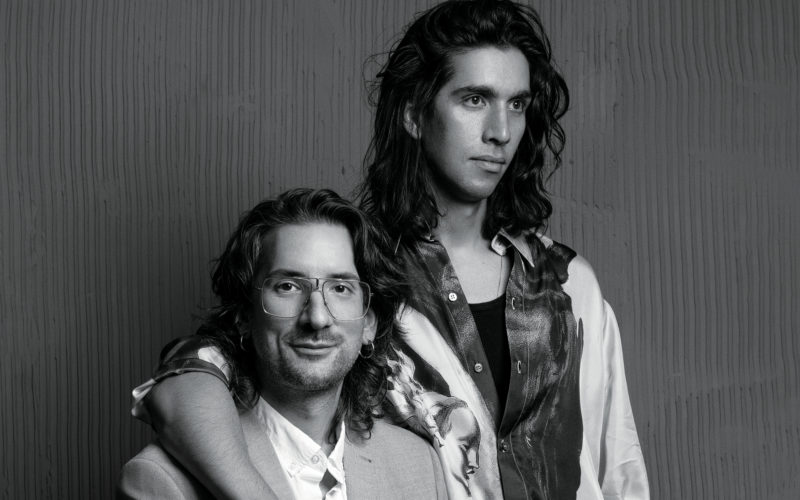On this week’s episode of Fortune’s Leadership Next podcast, cohosts Alan Murray and Ellen McGirt talk with Arianna Huffington, CEO and founder of Thrive Global, and Tony Bates, CEO of Genesys. The group discusses workforce wellness, how empathetic culture drives innovation, and the reasons empathy has become a go-to topic in boardrooms and conference spaces. Huffington and Bates also share details of their companies’ partnership—and how they’re putting A.I. to work for call center reps, helping them reduce stress before it swamps their productivity.
Listen to the episode or read the full transcript below.
Transcript
Alan Murray: Leadership Next is powered by the folks at Deloitte, who, like me, are super focused on how CEOs can lead in the context of disruption and evolving societal expectations. Welcome to Leadership Next, the podcast about the changing rules of business leadership.
I’m Alan Murray, and I’m here with my favorite and only cohost, Ellen McGirt.
Ellen McGirt: I love these moments, Alan. Thank you so much for that, and hello everyone. I’m so excited about this conversation we’re about to have. I know you’re my cohost. You’re also my boss. And I’m here to tell you I am very stressed these days. We’re living in very stressful times. We have Arianna Huffington, the founder and CEO of Thrive, and Tony Bates, the chairman and CEO of Genesys, here to talk to us about empathy-driven innovation, particularly about workforce wellness. But before I throw the mike to them, if this wasn’t the sign of the times that we’re living in, Beyoncé has finally released some new music, and it turns out to be about the Great Resignation and burnout at work: “Break My Soul” is now the anthem for the moment that we’re living in.
Murray: And, Ellen, before we dive in, I would say, having known Arianna Huffington for almost three decades now I think, I’ll bet she inspired Beyoncé to do that.
Arianna Huffington: Yes, of course. It was not an accident.
McGirt: I believe it. I believe it.
Huffington: It’s great to be with you, Alan and Ellen.
McGirt: And, Tony, it’s wonderful to see you again. I haven’t talked to you since you were at Cisco, and you’ve turned out really well since then. You’ve been very busy.
Tony Bates: Well, thank you for that. I appreciate it. Lots of work to be done. But it’s great to be here, Ellen and Alan, with pleasure.
McGirt: Let’s just jump right in with your great collaboration. You cowrote an essay that we published on Fortune.com that is about empathy-driven innovation, particularly around well-being in the workforce, and it’s just not a perk, and it needs to be part of how we all operate. Arianna, can I get you to start us off here? What is behind all that?
Huffington: Well, actually, Tony wrote a book, which I highly recommend to everyone, called Empathy in Action, which for me, looks ahead at the future we need to create where the employee experience is very clearly connected to the customer experience and business metrics. You know, for many decades, the two things were seen as very separate, like, the role of the business was to make profits and take care of the shareholders, and then you check the box and gave some warm and fuzzy benefits to the employees. And now we see that that model doesn’t work. Frankly, it wasn’t working before the pandemic, but the pandemic made very clear how inadequate that model is and how when you have empathy-driven innovation that improves the employee experience, everything else, other business metrics that matter—attrition, retention, productivity, health care costs—are better.
Bates: Yeah, and maybe just to add to that, Ellen, a little bit, and thank you for the plug on the book. But the book really was when I joined Genesys, and for those who aren’t as familiar with Genesys, we provide customer experience software, particularly in the content and customer service area. And just as Arianna was mentioning, everything sort of in my industry was driven by these very business-centric metrics, you know? And yet, when you think about the software we were delivering, it was really connecting humans to humans, right? Someone calling in with either a challenging customer service issue, or they were struggling to update their credit card information or whatever it would be. And yet everything in the industry was these business metrics that were really focused on how quickly I could get you in and out of the queue, how many, literally how many calls per day I could manage, and it was really missing this human connection. And that was really an aha moment for me.
And then the second piece, as Arianna just mentioned, is that empathetic cultures really drive innovation. We all know that if someone feels that they’re listened to and understood at work, they tend to be more innovative and more productive. And when they face the customer, if they have this great feeling that their, you know, their values are recognized in the company, they drive better and better experiences to customers, and that drives loyalty. And that actually ends up being a much more, I think, long-term way to grow the business.
Murray: I do want to dive into that. But before we do, I want to ask you both a question that I’m asked all the time, which is, why is this happening now? I mean, I have been covering business for four decades. But it’s really only in the last four or five years that I’ve heard some of the best CEOs talk about empathy. What has changed to cause this to come to the fore at this moment?
Bates: I think if you sort of step back to your point, Alan, I would echo, you know, there was sort of a dearth of even the word empathy in leadership conferences. If you go to your CEO conference and so on, you go back a few years. It was very different, right? People were much more command and control; most organizations tended to be very EQ-centric leadership team all around, you know? Around the same kind of executive boardroom or conference room, and so it was very much this approach where you sort of set the mission, the vision, and then you just said everyone in the company executes. Now, I think the pandemic really fueled this, but the whole modernization of the workplace, a focus on more distributed approaches and companies, made that command and control aspect much more difficult to implement in reality.
Secondarily, as we talk about new folks entering the workforce, they’re much more digital, they’re much more fluid, they’re much more willing to have more flexible lives. The pandemic took that to a whole new level, because essentially we all had to suddenly work at home, and as leaders, we had to communicate in a different way. And so I think it was a recognition that this wasn’t going to go back. We weren’t going to go back to the same kind of industrial theory of leadership, and that’s why you hear so many folks rethinking this. Then on top of that, you know, you started at the top of this, Ellen, the stress that people are feeling in their lives, in terms of changing in the way you work, the way you live, the way you learn, the way you play. Really, I think, how to change leaders’ mindsets, and certainly for me. And it became much more about listening and understanding and not judging, if I can say that way, what your employees are going to do. Really be putting yourself in the shoes of other folks, and that’s really at the root of empathy. And that’s why I think you see that, Alan, coming much more through in not only narrative but actually implementations.
Murray: I love that way of putting it. Ellen, if I can just interject. Ellen and I have a colleague Geoff Colvin, who wrote a book a few years ago called Humans Are Underrated, and one of the things he said in there that struck me was, you know, the 20th-century business practice was really about trying to make people into better machines. Right? We were all cogs in the bigger, in a bigger machine-like enterprise. That’s what scientific management was all about. And it’s becoming increasingly clear with every passing year that in the 21st century, the key to value is going to be making people better people. That those human skills and values and connections are going to be the core to business value.
Huffington: Absolutely. I couldn’t agree more. In fact, if you look at the way over the last few decades we’ve been working—ignoring the data and the science around peak performance, assuming that the way to be our best was to power through exhaustion beyond 24/7—that was exactly mimicking machines, because the goal with machines and after machines, the goal with software, is to minimize downtime. But all the latest science makes it very clear that for the human operating system, downtime is a feature not a bug. We need downtime to be able to perform at our best, to be able to be the best leaders we can be. Because the qualities that you need for leadership especially in very turbulent times like ours, like creativity, like empathy, like innovation, are the first to be depleted. We cannot just do maintenance. And I don’t think we can underestimate the impact of the pandemic. It’s always hard to be accurate about the impact of a historic period that we’re still going through. But the pandemic has been such a catalyst for these changes that were overdue. But fundamental transformational changes are so hard. They require a kind of seismic event to actually happen. And now we’re still in the middle of them unfolding. But there is no going back. In fact, I’m very optimistic that this is going to be a once in a generation opportunity to redefine the way we work and live in ways that are more human, more empathetic, and more sustainable.
Bates: Yeah, maybe just to add a little bit to that. One of the things that really came and hit me was that if you sort of think about the way that most businesses express themselves, and the way that most businesses have used technology, it’s all been in service of efficiency and effectiveness, productivity as Arianna talked about. And yet we sort of inherently know that if you take care of your customers and your employees really well, you’re generally going to have less attrition. You’re going to have more loyalty. You’re going to have greater creativity. You’re going to have more innovation, and you’re going to have opportunities to thrive in your business. But, and we talk a little bit about this in the book, and yet, there’s no standard sort of measure for measuring those things. Nobody reports those in their financial statements. Nobody reports the overall well-being of your company, and all the great things that many great companies, by the way, are doing. And so I think, to Arianna’s point, we’re at a seminal moment where we have an opportunity as not only leaders but also in the way we think about building products to transform a whole industry. And I actually think long-term we will be talking about these things much more, potentially, then the financial metrics and the classic KPIs that have been around 100 years. I’m not saying they’re not important, but I think they’re sort of secondary at some level to the force multiplier that empathy can really bring to a business. So I’m very optimistic as well.
McGirt: I certainly hope the two of you are right about this. It is, we are certainly living through such turbulent times. I want to ask a question about trust. But before I do, I was wondering if you could give us some examples of where you see technology really working to promote well-being in the workforce, within our workflow in our daily lives. Maybe that would be a good place to move the conversation.
Huffington: Well, maybe we can talk about what Genesys and Thrive are doing together as an example of the technological intervention in the workflow itself that actually has a real impact on the well-being of contact center agents. And as a result, the real impact on their productivity and on customer success. I’m really excited about this partnership for many reasons. One of them is that it’s addressing a population that has suffered incredible amounts of stress. According to one survey, 90% of contact center agents have experienced stress during this time. Just think of it, they’re at the receiving end of people’s problems and complaints all the time. So an intervention is based on the neuroscience that it takes 60 to 90 seconds to course-correct from stress. So while stress is unavoidable, cumulative stress is avoidable. So basically, these resets, as we call them, are fed into the queue on the dashboard as contact center agents are handling calls. And then they get this call which asks them to focus on their breathing. And we know that focusing on deep breathing moves you from the sympathetic to the parasympathetic nervous system, or to focus on what they’re grateful for. There are hundreds of them. And then as we become more and more intelligent, we can personalize them. And one of my favorite things that’s on the road map is to have contact center agents, when they are onboarded, create their own personalized reset, the things that give them joy.
Murray: That’s fascinating. Tony, will it be the kind of thing where you have A.I. that recognizes whether a contact center worker is in a stressful conversation or feeling stressed or sounding stressful? Is that what triggers one of these reset moments?
Bates: Yeah, absolutely. I mean, just even what we have today, even this is cool. It’s fairly rudimentary A.I., you know, as Arianna mentioned, contact center agents, and by the way, they are a very large part of the global workforce. If you think about it, they are really at the front lines of every single, pretty much, every company of any size, by the way, on the planet, and they’re in a very stressful situation. We can already do simple things, like if you’re on a call for a long time, the chances are that that’s going to have some stressful moments in it. So we can already do things like that, we can intervene with one of these Thrive resets. But to your question, absolutely, there’s all sorts of areas we can go. We can measure sentiment, we can look at the A.I. of the transcription of the voice transaction on the digital transaction. And, as Arianna talked about, make that highly personalized, and the science will keep evolving. There may be one time you want a breathing exercise, another time you just want to look at some photos or a piece of video that really touches you personally, or another time that might be, you know, the meditation mantra that you’d like to use to help to reset. So these are all sorts of just examples of what we can do.
Murray: It’s such a brilliant idea, because it’s, I mean, this is something I’ve been struggling with personally, and I’ve seen a lot of people in executive jobs. And of course, Arianna, this is your own journey, which I’d like to talk about before we we finish up this conversation. But this notion that we all became masters of managing our time, but not mastering our energy and emotions, and that our effectiveness at our job probably depends more on our mastery of our energy and emotions than our mastery of our time. So to see this employed at the contact center level is really encouraging. But I guess the question I have for both of you is, do your customers get it? The contact center world is a world where the productivity metrics are very, very tight. You know, how many calls can I respond to in a given hour? Do your clients understand the importance of what you’re doing? And are they willing to sacrifice traditional productivity metrics in order to make it work?
Huffington: But, Alan, here’s the point. They are not sacrificing productivity metrics. They’re improving productivity metrics. So that’s really the big transition we are going through. Understanding that if you are on without any breaks, your productivity suffers, your performance suffers, and that is data driven. And so I was very amazed that when I took part in a roundtable that Genesys had arranged for many of their customers, and they were amazing. You know, they were saying things like, “We need to help the contact center agents find their happy place. When they find their happy place, they’re going to be better at having happy customers.” And we know that from ourselves. When I first talked to Tony about the idea, the thing he loved was how simple it is, and how easy it is to implement. And how science-driven it is. We worked with BJ Fogg from Stanford, who is very focused as you know on micro steps and tiny habits and the impact of these small breaks. And, Alan, to your point, they can also be applied to people who are privileged like we are to be able to work from home or have executive jobs. They, too, need this intervention so that we bring them into Teams, or Slack, or any method of communication that you have.
Bates: Yeah, and maybe just to echo, Alan, just to give you the real time. I think the light bulb went off for a lot of our customers, which is, “You’re right.” The contact center is sort of classic time and motion study, a bunch of analytics, who’s good at it, who’s not, you know. But every one of them would say they’re struggling right at the root of what they do with actually onboarding, hiring, and keeping their employees. And so it’s kind of this paradox. They’ve measured people in a certain way. But actually what they’ve done is burned them out by using these measurements, these traditional metrics, and then they spend most of their time recruiting. And, you know, again, I think it’s sort of inherently obvious once you kind of step back, and then we have science that shows that, of course, the well-being of your employees matters, probably the most of anything, because if they’re happy, they’re more calm, they can deal with things in a better way. And I would tell you that if you sort of think about the evolution of product design, we talk a lot today in the industry about design thinking and that the root of design thinking is people, right? It’s actually about, how will that person react to a certain amount of clicks or a certain amount of where they see things? I think what we really need to do, and we’re just the beginning of that kind of movement, is e-schools, empathy thinking. That’s the next step we need to take, and we need to take that in productivity tools that we use in companies. We need to extend the kind of work that Arianna is doing more deeply into other products. And I think we’re going to see this happen in a broad basis, I hope. Just like the contact center industry, just like we’ve seen the early acceptance of the work we’re doing, really help people thrive in their careers.
[Music]
Murray: I’m here with Joe Ucuzoglu, who is the CEO of Deloitte US, and had the good sense to sponsor this podcast. Joe, thanks for being with us. And thanks for your support of our second season.
Joe Ucuzoglu: Thanks, Alan. Pleasure to be here.
Murray: Joe, we talked about how technology adoption accelerated in 2020. But at the same time, it also seemed last year like there was an increased focus on people, on human capital. Can we hope for a future where we have both more technology and more humanity all at the same time?
Ucuzoglu: Well, Alan, I’m particularly energized, leading a large professional services firm where people are at the core. This is all about pairing great people with innovative technologies. It’s not about replacing one with the other. It’s allowing people to free up more of their time to do what humans do best. The technology is an enabler for great people to use their creativity, their complex judgment, and decision-making skills. But at the same time, I think we have to recognize that getting this right definitely requires a new kind of corporate leadership. I would say, out with the autocratic, all-knowing CEOs sitting in the corner office, and in with those who bring vulnerability, empathy, humility. Those are such critical attributes to unlocking the creative talents of the workforce in such a dynamic economy.
Murray: It is very different when you’re trying to get a group of creative people to solve a problem than when you’re simply giving orders and telling them what to do.
Ucuzoglu: It requires a brand of leadership that places a premium on instilling values, instilling principles, in empowering people to be able to make those judgments on the front line, instead of waiting for some checklist or waiting for some prescriptive order from corporate that spells out exactly how each of those decisions need to be made.
Murray: Joe, thank you.
[Music]
McGirt: Real quick, I want to bring in the voice of the more skeptical call center worker or someone who has a wage job for whom this intervention would be welcome. So they might be concerned that this is not going to reflect a realistic or heartfelt new mindset shift from management. We’re seeing union movements across the country, across industries, and workers are really speaking up about their lives and their well-being but also their future. So I’m curious if you could coach C-suites across the country, across the industry, what kind of work do they need to do to be able to fully embrace this and communicate the long-term vision of these kinds of technological innovations that are only going to expand to their workforce going forward? I feel like that’s the philosopher king and queen piece of this that I’d love to hear from both of you.
Huffington: Well, Ellen, first of all, my favorite thing in the world is converting skeptics. So thank you, thank you. So thank you for giving the voice. So what is interesting, as we saw in the Deloitte study, that executives are themselves much more aware of their own stress and burnout. I mean, the numbers were staggering. Seventy-six percent of executives said that their physical and mental health has been affected—76%!—and 69% of that are considering leaving their jobs. So what is happening is really across the board. The Great Resignation is not just among employees, it’s also among leaders, and I think that has to do with the more kind of existential question about our lives, and putting work in its proper place. Work is incredibly important. All of us here are very lucky to have jobs we love, and hard work is part of that. But the assumption that life was all about climbing the career ladder at the expense of relationships, health, everything else, that assumption is eroding very fast. So when leaders have that experience themselves, they’re much more likely to understand why empathy and humanizing the workforce is not just important, in terms of human terms, but in terms of business.
Bates: Yeah, I mean, maybe what I’d say to Ellen’s point, I think the first thing is, as a C-level executive, what you have to do is you have to recognize, just like we talked about, that this is actually a business imperative. It’s a bit of a myth. When people say, well, you do all these nice things for your employees, that somehow productivity is going to go down. So first, I think everyone needs to reframe their thinking. Secondarily, I think this needs to be more than just words on a page. This needs to be from the top in terms of the culture you want to build for the company, and the things that you value. And you know, one small example at Genesys in the pandemic: We saw that people were highly stressed. It’s no surprise, we put a big focus on mental health and mental well-being seminars to create scaffolding for their own, you know, just to keep them centered. And you know what was the most interesting outcome? The number-one attended seminar was how do I as a parent deal with children’s mental health? In the old days in a business, that would be off-limits, that would be stigmatized. That would be, you know, that’s something you talk about at home. And yet the embracement of that was like, finally recognize that I’m human. And just as Arianna said, I think we do have to be open and authentic of the problems that you’re going through, that I’m going through, that Arianna is going through, that Alan’s going through, that Ellen’s going through this. We’re all dealing with shifts and changes in what we previously thought was a certain way of, of working and certain way of doing things. And then the last thing just to say is, I think embracing the technology that enables this is super important. Because it won’t be enough just to say, okay, here’s kind of our new value system, the technology, the work that we’re doing together, the ability to use cloud-based technology to get more data to help with some of these ideas that are out there, Alan, is absolutely going to be crucial. And embrace those things. I think great things can happen.
Murray: You know, this is probably a good moment before we let you go to do a little empathizing of our own here, because both of you have such fascinating stories that led you to this point. And, Arianna, maybe we could start with you. I mean, the origin story of Thrive is a very personal story. I wonder if you can tell us how you got to this.
Huffington: The origin story is collapse, when I actually, having bought into the collective delusion that in order to be super-founder and supermom, you know, I was two years into building the Huffington Post, a divorced mother of two daughters. I thought that I didn’t have the luxury to sleep or to take care of myself. I collapsed. I hit my head on my desk. I broke my cheekbone. And that was in 2007. And I was diagnosed with burnout, which at the time was not much discussed as an occupational hazard. I started covering these issues exhaustively on the Huffington Post. And by 2016, I wanted not just to raise awareness through a media company, but to help people change behavior. And for that I needed the behavior change technology company. So that’s how Thrive was born, in 2016.
Murray: Yeah, and how about you, Tony? I mean, you’ve been a technology executive, different companies. How did you end up here?
Bates: You know, I think what was sort of unique maybe in my background, I’ve been fortunate to work in all kinds of aspects of technology, right? Big B2B businesses, as mentioned, that I ran Skype, a big large-scale B2C company. I also worked on consumer hardware, and it gave me this very unique kind of view of these, and I’ve also been around a while seeing all these different monumental shifts in what people want. And so, when I arrived, the Genesys is not well, I came in with the sort of view that there had to be something more, you know, a little bit of my industry, it always been like, how do we not make things worse? You know, it’s a very negative result, like, how do we get someone in and out quickly, and then we can check the box. And so it gave me this view that I felt there has to be a better way to deliver these incredible customer experiences. And on top of that, just want to say that the ultimate sort of guiding light in my life is my mother and my wife, and they’re, they’re incredibly empathetic people. My mother, I talked about it in the book, from a very young age would always use this phrase: Never judge a person until you walk a mile in their shoes. And what I’ve noticed as I was going through my own leadership revolution, especially when I was at Cisco, a very large company, there’s a lot of judging that happens. People say stuff like, well, you know, what Ellen does, but, you know, I don’t think he’s doing a very good job. I was like, wait a second, place where not only did I feel empathy could really help in the products and services we delivered, that could be a game changer for us as a company.
Huffington: And I must say, I did not have the pleasure to meet his mother, but I have met his wife, Cori, and I can absolutely testify to what she brings to the table, that sense of empathy and love. I remember actually when we had dinner at your home with Cori. I just said to Tony, we must do something to protect the advances that have been made in this area in terms of mental health and well-being at a time when, as you know, companies have very tough decisions to make: layoffs, hiring freezes. So he came up with this idea of a mental health pledge, and very quickly got over eight companies, including Genesys and Walmart and Accenture and Salesforce, to sign up committing that even though we are going to be going through very challenging economic times, their prioritization of mental health is going to remain. I think that was a really pivotal moment because it’s very easy during a crisis to lose the gains that have been made over the last two years.
Murray: Yeah, kudos to both of you for that. It really is an important moment for all of us as individuals, but it’s an important moment for business in this new, more human-centered future. I really appreciate you both taking the time to talk about it with us.
Huffington: Thank you so much.
Murray: Leadership Next is edited by Nicole Vergalla, written by me, Alan Murray, along with my amazing colleagues, Ellen McGirt and Megan Arnold. Our theme is by Jason Snell. Executive producers are Mason Cohn and Megan Arnold. Leadership Next is a production of Fortune Media. Leadership Next episodes are produced by Fortune’s editorial team.
The views and opinions expressed by podcast speakers and guests are solely their own and do not reflect the opinions of Deloitte or its personnel. Nor does Deloitte advocate or endorse any individuals or entities featured on the episodes.
Sign up for the Fortune Features email list so you don’t miss our biggest features, exclusive interviews, and investigations.


















:quality(85):upscale()/2023/09/13/661/n/1922564/e914a1066501cc897903d6.08615338_.png)









